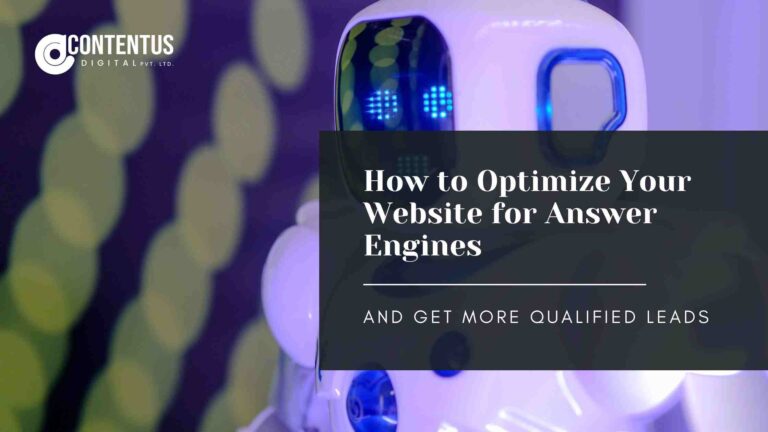Keyword/keyphrase in SEO content writing
Table of content
|
1. |
Introduction |
|
2. |
Why are keywords important for SEO? |
|
3. |
How to find the right keywords? |
|
4. |
Exactly where to add keywords on your web page? |
|
5. |
Conclusion |
Keyword/keyphrase refers to some specific words and phrases which help the website contents to get sufficient organic traffic. That means, when your target audience searches for these keywords, they will find your page or site on the search engine ranking page (SERP). So, for this, you need to play with the right search engine optimization strategy. If you follow the proper strategies, you will achieve a better rank on SERP and attract more people to your content.
You have to work with two types of keywords – primary keywords and secondary keywords. Primary keywords are those which are the main search terms and directly related to your topic. In contrast, secondary keywords are somehow related to your topic.
Now, in this blog, you will learn about why keywords are important for SEO content writing.
Why are keywords important for SEO?
- Help you to know about the target audience
The first and most important thing for SEO writers is to understand the perspective, behaviour and needs of the target audience. For this, simply you can search on Google for what they are looking for. Suppose you’re a seller of cameras. Now, you are finding that your target users are searching for ‘best professional cameras’ on Google. So, you can understand that your customers are finding the best quality professional cameras.
That means the ‘best professional cameras’ – should be one of your targeted primary keywords. You should integrate this keyword/keyphrase whenever you’re writing a product description, user guide, or FAQ. This strategy will help the users to find out your products with this target keyword. So, when they search with this keyword, Google will show your content to them.
- Industry and marketing trends
By conducting keyword research, you can learn about the latest news and trends from your industry. Also, you can get an in-detailed guide about the latest holistic marketing trends. These techniques help you to gather information which you have not known yet. Also, these become helpful to find out the pain points, requirements, and interests of your target audiences. So, by acquiring insights from your industry and marketing trends, you can generate fresh and unique content ideas.
- Help to produce SEO-optimized content
SEO or search engine optimization is a crucial strategy for content writing and digital marketing. You can include relevant primary and secondary keywords to make your content optimized for SEO. These help your content to meet the E-E-A-T principle of Google. Thus, the content gains high ranks on the SERP pages.
Moreover, you should use LSI (Latent Semantic Indexing) keywords to get a high rank on Google. They are nothing but topic-specific keywords and phrases. The LSI keywords confirm to Google that your content is about a specific topic which you have chosen to write. Thus, your content becomes crawlable and Google considers it for high rank.
- Boost traffic
Keywords play a significant role in boosting your website traffic. When you use a relevant keyword/keyphrase in a product description, video content, infographics, blogs, or any other form of content, it appears on the top search results on Google. As a result, people easily view your content and navigate to your website. Thus, your site gets better traffic. Also, the more people visit your site, the site drives more traffic. In this way, you can attract more users and get more loyal and potential customers for your site.
- Improve conversion rate
Keyword intent can boost your conversion rate. As a result, it appends an increment in the sales and content marketing ROI. But what does it mean by keyword intent? It refers to the purpose of the searchers which they want to attain by searching the specific keywords.
Now, let’s know about the different search intents which boost your conversion rate –
- Informational intent: It refers to a purpose when the searchers are looking to learn more about a specific topic. As they want to learn something, the intent is informational and research-driven. So, the informational intent-related keywords create a huge opportunity to engage potential customers in the early stages of the buying journey.
- Commercial intent: This type of intent-related keyword/keyphrase insists the searchers purchase a product/service. These include terms like ‘purchase’, ‘buy’, ‘get’, etc. Thus, they lead the users to make an informed purchasing decision.
- Navigational intent: These keywords help the searchers to find information about a specific site or webpage. Thus, these include brand names. As a result, your brand-specific target pages rank well.
- Transactional intent: They contain terms like ‘review’, ‘comparison’, and ‘vs’ to indicate the strongest intention for purchasing or other action. These keywords come with paid ads and product pages with high optimization.
- Help you to understand the competition
Keyword/keyphrase research helps you to understand the insights of competitiveness of a particular keyword. That means you can understand the –
- Search volume for the keyphrase/keyword
- Are your competitors using similar keywords as you?
- If your rivals are using similar keywords, etc.
These insights will help you to stay ahead of the competition for SEO ranking.
How to find the right keywords?
- First, decide some topics related to your content writer business for which you want to achieve the ranks.
- Then, research some of the specific and relevant keywords, including primary and secondary keyphrases for your topics. Also, remember that you have to conduct keyword research related to the buyer’s persona.
- Understand the search intention of the users. You already know how the search intention affects your content productionprocess. So, consider the search intention to identify the best keywords.
- If you’re looking for more keyphrases, you can search in the ‘Related searches’ section on Google SERP. This section provides the keyword/keyphrase suggestions which are not specific to the original topic but relatable to it.
- Furthermore, you can use keyword research tools like Google Keyword Planner, SEMrush Keyword Magic Tool, etc.
Exactly where to add keywords on your web page?
You are free to include the keywords anywhere on a web page. But, by adding keywords in the places mentioned below, you can get better results.
- Include primary keywords in title tags and meta descriptions. It can improve the click-through rate.
- Then, by including keywords within the anchor texts, you can help Google to understand what the content is about. Also, you can include the keywords in the nearby content of the anchor texts.
- You can create a descriptive name for your video and image files using the relevant primary keywords.
- Moreover, you can use keywords for the alt attributes of the images.
Conclusion
Keywords/keyphrases are always essential for improving holistic SEO. They help the users quickly find out what they are looking for on your site. Also, they improve your ranking on SERP. As a result, users easily find your content and navigate to your site to learn it. In this way, keywords gain your site’s traffic and improve the SEO of your site.
FAQs
- What is content writing samples?
Content writing samples are the examples of written pieces that showcase writer’s skills, style, and the depth of expertise of producing different types of content. These include blog posts, articles, social media posts, website copy, and more.








Your tips are realistic and realistic; I can see myself implementing them hassle-free.
This site regularly produces great content and this post is no exception. Your thoughts are well presented and the content is very engaging. Keep it up!
This site is a great resource for anyone interested in learning about a variety of subjects. Thanks for all that you do.